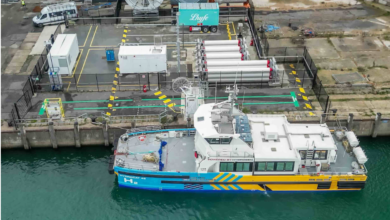Advent Technologies completes fuel cell project for the European space agency

Advent Technologies Holdings, Inc. announced the successful completion of a research and development project commissioned under a programme of and funded by the European Space Agency, dedicated to the development of a closed-loop regenerative fuel cell system earlier this year.
The project started in 2014, with Advent as the prime contractor. Subcontractors included the Centre for Research and Technology – Hellas, the Foundation for Research and Technology – Hellas, and the University of Patras. The project concluded with the successful delivery of the high-temperature proton exchange membrane (“HT-PEM”) stack to ESA.
During a highly successful testing phase, the RFCS demonstrated its ability to effectively meet the power demands for three lunar day and night cycles. Due to their high specific energy density, closed loop RFCS are gaining recognition as a promising technology for space applications that require large amounts of energy to be stored in order to survive long eclipse durations.
The RFCS that was developed for this project consisted of Advent’s advanced HT-PEM fuel cell stack, a high pressure-PEM electrolyser, and a storage system for reactants. The system was also equipped with Advent’s proprietary thermal-management sub-system, which can be seamlessly integrated into thermal management systems for spacecraft and readily adapted for other processes requiring high quality heat.
The fuel cell stack utilizes Advent’s current polybenzimidazole-based Membrane Electrode Assemblies (“MEAs”), the same MEAs used in both Advent’s existing product portfolio (including SereneU, Honey Badger 50™, and M-ZERØ™) and licensed in 3rd party products. In a space mission utilizing an RFCS, a high pressure-PEM electrolyser utilizes solar power to convert water into hydrogen and oxygen, which are then stored and later used to feed the fuel cell stack, generating electrical power while producing water and heat as a byproduct.
Dr. Emory De Castro, Chief Technology Officer of Advent Technologies Holdings, Inc., stated, “We are delighted with the successful completion of this highly innovative project with ESA, which demonstrates how well Advent’s proprietary technology can support satellites and other space missions, as well as a wide range of aerospace, marine, and terrestrial applications. We look forward to joining similar projects in the near future.”
Brandon Buergler, the ESA technical officer of the activity said: “The development of new energy storage technologies with higher specific energy than conventional Li-ion batteries is needed for enabling new space missions comprising for example the lunar night survival of a lunar lander’s critical elements.”
